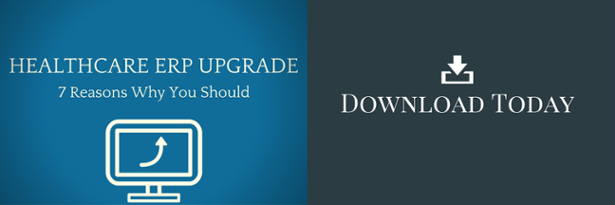In this video, Lane Tucker discusses the top 3 ERP issues that healthcare CIO's are dealing with.
1. Upgrade or Replace
ERP systems are obviously not new to the marketplace. Many of the systems that are installed are becoming quite old. With these systems, a CIO is faced with either making an upgrade or making a quantum change. Frequently, the upgrade itself is a quantum change, so catching up on where they need to be release-wise is a huge concern. The expense that’s associated with that major concern compels the CIO to make the decision “do we stay, do we move, do we embrace Cloud, and how does that look?” So, it’s not just a simple, “We’ve got to do the upgrade,” or “When are we going to do it?”—it’s, “What are all the other implications of getting involved in the upgrade?”
 2. Customization Issues
2. Customization Issues
Many of the applications in the ERP world have been customized for years, especially when we’re talking about PeopleSoft applications, where there hasn’t been a substantive new release in many years, and so the customizations to the project are enormous. If you’re at 9.0 and you need to go to 9.2 so that you can get the most recent releases, it may be a reinstall rather than just an upgrade. So, being very far behind automatically says that you’ve customized the system to the point where even going to another platform is going to be very expensive—that’s a major consideration.
3. Security
Finally, security. Everyone, especially in healthcare, is keenly aware of the risk of having poorly maintained security surrounding your ERP and even your EMR systems. The hacking that’s going on—the internal hacking, the external hacking—everything is at risk these days. Failing to protect the assets of your organization, which is keenly in the CIO’s arena, failing to protect your information, is a huge risk and it’s a huge consideration with ERP. Failing to stay current with current releases from your vendor also means that you’re not staying current with the state of the art security measures that are in place. Those are the primary reasons that CIOs are really taking a harder look at what’s going on with ERP applications, because the implications are not just singular, they’re multifaceted.
Looking for more ERP expertise? Download our healthcare ERP guide.
